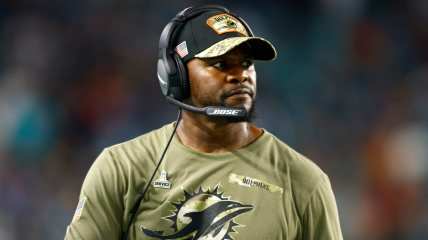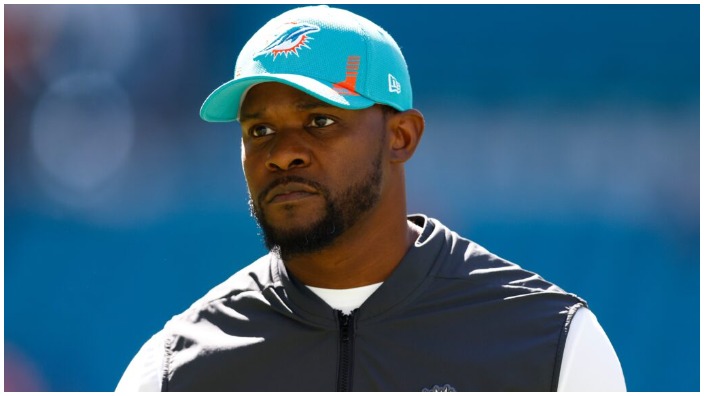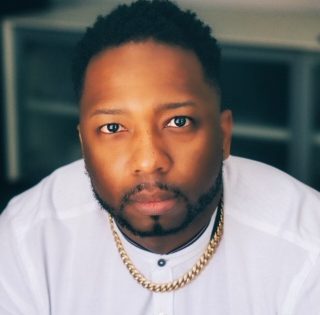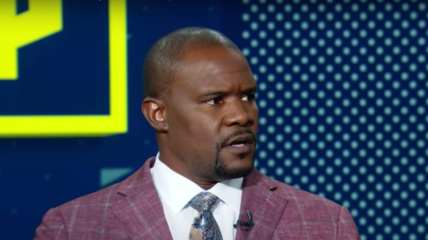Racist hiring practices have more long-term consequences than you might think
OPINION: Discriminatory hiring practices like the ones alleged by Brian Flores against the NFL disenfranchise Black Americans, widening the wealth gap and leading to stress and poor health.

The “good ol’ boys” strike again.
In a whirlwind week of Super Bowl chatter, hirings and firings, and prominent quarterback retirements, former Miami Dolphins coach Brian Flores’ allegations of workplace discrimination against the National Football League have taken center stage, leading some to call the Brooklyn native the Rosa Parks of the NFL.
In Flores’ class-action lawsuit against the NFL, the former (hopefully not for long) NFL coach details a history of receiving sham interviews and being incentivized to lose games, both of which are irreparably damaging to the reputation of any coach, let alone one who is a member of a historically marginalized group.

The Brian Flores complaint, explained
Flores’ allegations, if true, bring into question the entire NFL hiring process, leaving many to wonder if most, or all, the interviews granted to Black coaches and executives were merely box-checking interviews needed to fulfill a disingenuous commitment to promoting diversity within the NFL ranks.
The likely answer to that rhetorical question is yes. What Flores has uncovered is not new—not in the NFL or life in general.
The league—which is known to hire Black head coaches when the job is so undesirable that all the white men have passed it up—has fewer Black coaches today (Pittsburgh Steelers head coach Mike Tomlin is the only one) than before the Rooney Rule—a policy put forth by the NFL to promote diversity and develop a deep, sustainable talent pool at all levels of the organization— was instituted nearly 20 years ago. This number is staggering given that 70 percent of NFL players identify as African American, but not entirely surprising given the exclusion of Black people in ownership and executive decision-making.

Sham diversity at the executive level is as big a problem as the lack of diversity at the coaching ranks. Instead of diversifying the entire makeup of an organization, some companies have resorted to hiring Black and brown executives to lead diversity and inclusion roles, checking off the box of executive diversity with no intention of committing the dollars and labor needed to enact change.
Discriminatory hiring practices have, and continue to, disenfranchise Black Americans in this country, widening the current wealth gaps that exist, leading to stress and poor health. Systemic inequalities leave Black families with a fraction of the wealth of white families, creating a situation that leaves us more economically insecure and with far fewer opportunities for economic mobility.
The good ol’ boys—a term borne out of the male-only network of social and business connections among the elite—have combined nepotism and supposed “team building” to discourage minority participation.
Many work cultures encourage their employees to spend more time together, especially at the executive level, to build camaraderie and cultivate a positive team atmosphere. This makes sense given the notion that people are more likely to enjoy work and perform at a higher level when they are happy in their environment. While this might seem sensible, bringing a mostly homogenous group of people together, as is often the case in corporate America, and signing them up for activities they might fancy can have a crippling effect on morale by intentionally and unintentionally excluding valuable co-workers like women, Blacks and other historically marginalized groups of people.
Coach Bill Belichick’s mistaken text exposing Giants owner John Mara’s hiring of former Buffalo Bill’s offensive coordinator Brian Daboll days before Flores’ interview was simply the straw that broke the camel’s back, indicative of the backroom dealings that too often ostracize qualified Black candidates. While this might seem like another gut-wrenching example of the unfair treatment Black people have become all too accustomed to enduring, it is a unique opportunity to investigate company hiring and workplace culture across the board.
Flores’ case is bigger than one man trying to make a change in the NFL; it is a chance to undo the “fall in line or else” culture that permeates American work culture and undermines Black autonomy.
Even as we are confronted with dramatic examples of ongoing racial tensions, most white Americans remain convinced that race is no longer central to one’s opportunities in life, with many believing that these lingering conflicts are more representative of the actions of a few bad apples than a symptom of a larger systemic issue. This simply could not be farther from the truth. Discrimination, given how it often manifests subtly, is understandably difficult to measure in any context, but the proof is in the pudding. Black households have far less access to tax-advantaged forms of savings due to discriminatory employment practices, are less likely to be homeowners due to discriminatory practices like redlining, and are more likely to live in racially segregated communities where they are screened from advantageous employment opportunities.
Change does not occur in words alone; litigation and policy are two of the many tools that we can use to root out racism and cement change. Former Cleveland Browns head coach Hue Jackson recently shared that the Browns incentivized him to lose before his firing. I hope more coaches—and Black staffers, workers and executives from all walks of life—come out and share their stories in solidarity with Coach Flores.
The racial wealth gap is the biggest reason for the health disparities that exist in this country. I have detailed the impacts of biological weathering on the body and its association with stress-related diseases like obesity and hypertension. Racism forms cracks in our spirit, like cracks in the pavement of a busy road. Constant bouts of discrimination fill and expand the crack, like raindrops. Over time, the crack becomes a pothole that no longer resembles its original form.
It is time for us to take substantial steps towards repairing the potholes in our nation. Improving our current state means leveraging power and influence at the local, state, and federal levels to bring down the systemically racist constructs that hinder people from becoming the best version of themselves. Like Brown vs. the Board of Education, let’s hope Flores vs. the NFL is the first domino to fall in a cascade of sweeping change…change that we so desperately need.

Dr. Shamard Charles is the executive director of graduate studies in public health at St. Francis College and sits on the Medical Advisory Board of Verywell Health (Dot Dash-Meredith). He is also host of the health podcast, Heart Over Hype. He received his medical degree from the Warren Alpert Medical School of Brown University and his Masters of Public Health from Harvard’s T.H. Chan School of Public Health. Previously, he spent three years as senior health journalist for NBC News and served as a Global Press Fellow for the United Nations Foundation. You can follow him on Instagram @askdrcharles or Twitter @DrCharles_NBC.
TheGrio is now on your TV via Apple TV, Amazon Fire, Roku, and Android TV. Please download theGrio mobile apps today!







